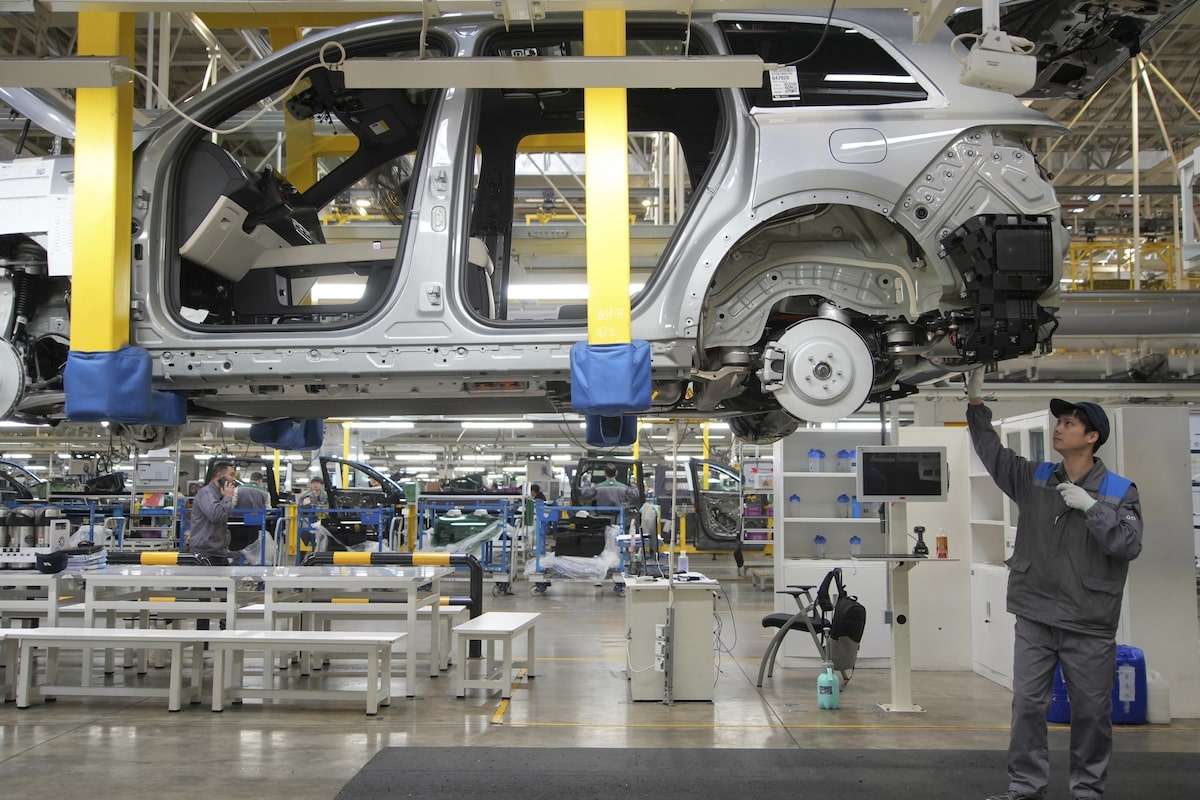The federal government says it will not allow Canada to become a dumping ground for diverted Chinese steel or aluminum after the United States announced it plans tariff hikes on imports from China.
U.S. tariffs on certain Chinese steel and aluminum products will climb to 25 per cent this year from as much as 7.5 per cent. The proposed higher tariff rate, announced this week, would apply to more than US$1- billion worth of steel and aluminum products.
“Canada is not and will not be a ‘back door’ for Chinese steel and aluminum,” Navpreet Chhatwal, communications adviser for Finance Minister Chrystia Freeland, said in a statement.
"Canada has a robust, responsive trade-remedy system to prevent dumped and subsidized imports and is committed to protecting our workers and industry from unfair trade,” Ms. Chhatwal said.
Ms. Freeland’s office did not rule out any measures but said it is still analyzing the American action.
The White House justified the tariffs by saying China is off-loading unfairly produced steel and aluminum in the United States.
“China’s policies and subsidies for their domestic steel and aluminum industries mean high-quality, low-emissions U.S. products are undercut by artificially low-priced Chinese alternatives produced with higher emissions,” the White House said in a Tuesday statement.
Canadian international trade lawyer Lawrence Herman said Canada should act quickly to enact tariffs to ward off Chinese steel and aluminum that might be redirected from the U.S. to markets with lower trade barriers.
He said this country shouldn’t wait for Ottawa’s trade-remedy system to handle a complaint from Canadian industry over unfair imports.
“The trade-remedy process is a slow, cumbersome process,” he said. “It requires industry to file complaints, complaints are investigated. It takes a long time to get the Canadian International Trade Tribunal to issue an order to apply anti-dumping or countervailing duties. I don’t think trade remedies are the answer.”
The risk, Mr. Herman said, is that Chinese steel gets dumped in Canada or the Canadian market becomes a clearing house for the transshipment of steel from China through this country and then into the United States.
He said Canada should enact targeted tariffs based on the same rationale employed by the Americans.
Mr. Herman noted that Section 53 of Canada’s Customs Tariff Act allows Ottawa to take pro-active steps in response to any major increase of Chinese goods into our country that are subsidized imports and in breach of trade agreements.
The tariff announcement was released in the middle of a heated campaign between presidential contenders Joe Biden and Donald Trump, his Republican predecessor. Both have tried to show who’s tougher on China.
The Chinese economy has been slowed by the collapse of the country’s real estate market and past coronavirus pandemic lockdowns, prompting President Xi Jinping to try to jump-start growth by ramping up production of electric vehicles and other products, making more than the Chinese market can absorb.
"China’s factory-led recovery and weak consumption growth, which are translating into excess capacity and an aggressive search for foreign markets, in tandem with the looming U.S. election season, add up to a perfect recipe for escalating U.S. trade frictions with China,” said Eswar Prasad, professor of trade policy at Cornell University.
The Chinese government was quick to push back against the tariffs announced by Mr. Biden, including on electric-vehicle imports, saying they “will seriously affect the atmosphere of bilateral co-operation.”
This is the best summary I could come up with:
The federal government says it will not allow Canada to become a dumping ground for diverted Chinese steel or aluminum after the United States announced it plans tariff hikes on imports from China.
“Canada is not and will not be a ‘back door’ for Chinese steel and aluminum,” Navpreet Chhatwal, communications adviser for Finance Minister Chrystia Freeland, said in a statement Wednesday.
“Canada has a robust, responsive trade-remedy system to prevent dumped and subsidized imports and is committed to protecting our workers and industry from unfair trade,” Ms. Chhatwal said.
“China’s policies and subsidies for their domestic steel and aluminum industries mean high-quality, low-emissions U.S. products are undercut by artificially low-priced Chinese alternatives produced with higher emissions,” the White House said in a Tuesday statement.
Mr. Herman noted that Section 53 of Canada’s Customs Tariff Act allows Ottawa to take pro-active steps in response to any major increase of Chinese goods into our country that are subsidized imports and in breach of trade agreements.
The Chinese government was quick to push back against the tariffs announced by Mr. Biden, including on electric-vehicle imports, saying they “will seriously affect the atmosphere of bilateral co-operation.”
The original article contains 569 words, the summary contains 193 words. Saved 66%. I’m a bot and I’m open source!


